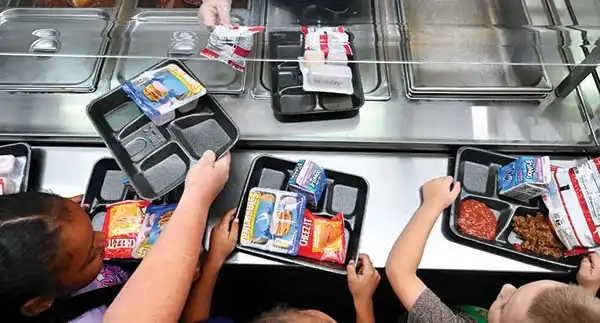Blitz Bureau
WASHINGTON: New federal rule will prohibit schools from charging low-income students transaction fees when their families electronically deposit funds into their lunch accounts, reported NBC News.
The policy, it said, was announced by the Agriculture Department, which administers the national programme that serves billions of student lunches and breakfasts every year.
The ban on the ‘junk fees’, which will go into effect in the 2027-28 academic year, applies to students eligible for free and reduced-price school meals – those whose annual household incomes are 185 per cent or less of the federal poverty level, which equals $57,720 maximum for a family of four.
The Consumer Financial Protection Bureau, a Government agency that aims to ensure fairness in the marketplace, estimated in a report in July that school meal payment processors collect more than $100 million in transaction fees a year.
The report said the fees disproportionately burden lower-income households, which tend to make smaller, more frequent electronic deposits into their children’s accounts.
That means that although students who qualify for reduced-price school meals cannot be charged more than 30 cents for breakfast and 40 cents for lunch, many families end up paying additional costs because of the fees they incur every time they deposit money into their meal accounts.
The average processing charge is $2.37 for payment processors that charge a flat rate and 4.4% of the total transaction for those that charge a percentage, according to the report. “The policy announced today will ensure fairness for all students receiving meals at a reduced price, even when paying online,” the Agriculture Department said in a statement on November 1.


























